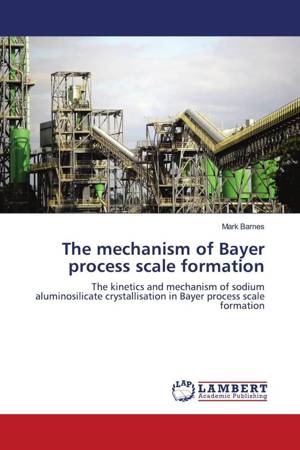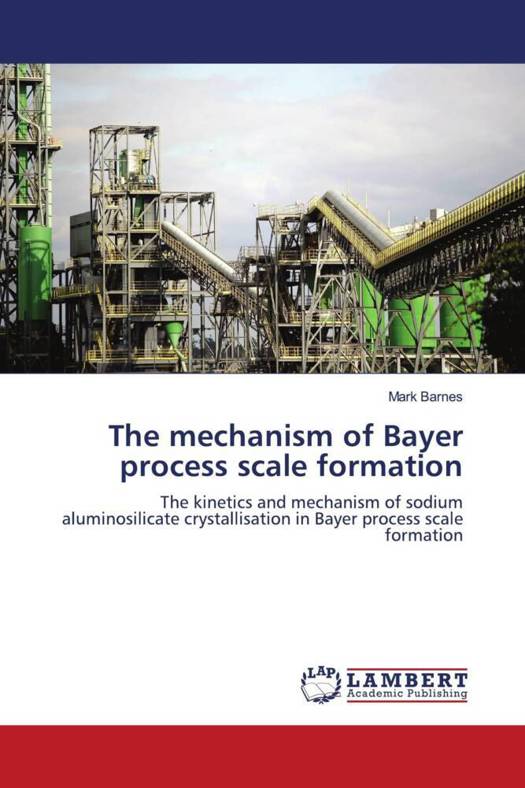
- Afhalen na 1 uur in een winkel met voorraad
- Gratis thuislevering in België vanaf € 30
- Ruim aanbod met 7 miljoen producten
- Afhalen na 1 uur in een winkel met voorraad
- Gratis thuislevering in België vanaf € 30
- Ruim aanbod met 7 miljoen producten
Zoeken
The mechanism of Bayer process scale formation
The kinetics and mechanism of sodium aluminosilicate crystallisation in Bayer process scale formation
Mark Barnes
Paperback | Engels
€ 53,45
+ 106 punten
Omschrijving
During alumina production, sodium aluminosilicate scale formation in process pipes, vessels, and equipment is a major problem. The two most common forms of scale are sodalite and cancrinite. This study was undertaken to gain a greater understanding of the scaling process, particularly the mechanisms, supersaturation, and kinetics of the desilication reactions, which lead to scale precipitation. The equilibrium solubilities of sodalite and cancrinite in synthetic spent Bayer liquor were determined over a broad range of temperatures (90 -220 °C). The growth kinetics of sodalite and cancrinite were measured and followed a 2nd and 3rd order dependence with respect to SiO2, respectively, with corresponding activation energies of 30 ± 2 kJ mol-1 and 80 ± 5 kJ mol-1. The sodalite to cancrinite phase transformation was studied and found to be a solution-mediated process with an activation energy of 133 kJ mol-1. Overall, the level of scale on the heat exchangers may be reduced if a seeding strategy were to be adopted in a plant environment.
Specificaties
Betrokkenen
- Auteur(s):
- Uitgeverij:
Inhoud
- Aantal bladzijden:
- 260
- Taal:
- Engels
Eigenschappen
- Productcode (EAN):
- 9786203196498
- Uitvoering:
- Paperback
- Afmetingen:
- 150 mm x 15 mm
- Gewicht:
- 362 g

Alleen bij Standaard Boekhandel
+ 106 punten op je klantenkaart van Standaard Boekhandel
Beoordelingen
We publiceren alleen reviews die voldoen aan de voorwaarden voor reviews. Bekijk onze voorwaarden voor reviews.











